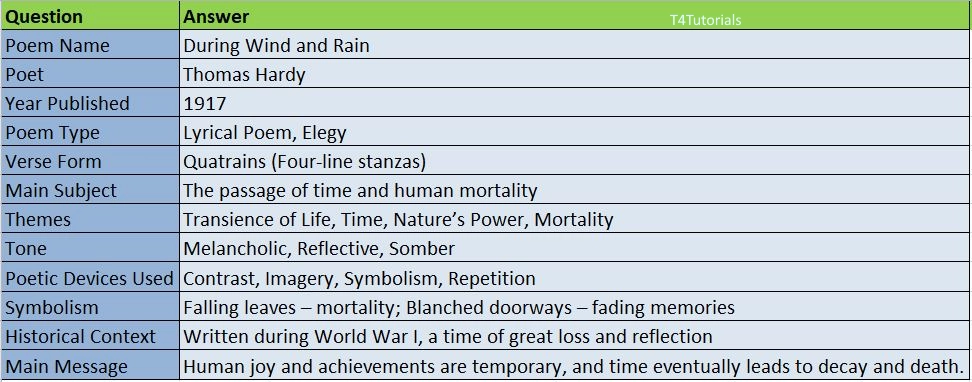Summary:
Thomas Hardy’s During Wind and Rain is a poignant poem reflecting on the passage of time and the inevitable decline of human life. The poem contrasts joyful memories of a family’s past with the harsh reality of mortality and decay. Hardy describes scenes of happiness—children playing, family members working in the garden, and homes full of life—only to remind the reader that these moments are fleeting. Each stanza ends with a reference to destruction, such as falling leaves, eroding tombstones, and the relentless power of nature. The poem’s tone is melancholic, emphasizing the transience of human joy and the inescapability of death.

10
Score: 0
Attempted: 0/10
Subscribe
Score: 0
Attempted: 0/10
Subscribe
| Question | Answer |
| Poem Name | During Wind and Rain |
| Poet | Thomas Hardy |
| Year Published | 1917 |
| Poem Type | Lyrical Poem, Elegy |
| Verse Form | Quatrains (Four-line stanzas) |
| Main Subject | The passage of time and human mortality |
| Themes | Transience of Life, Time, Nature’s Power, Mortality |
| Tone | Melancholic, Reflective, Somber |
| Poetic Devices Used | Contrast, Imagery, Symbolism, Repetition |
| Symbolism | Falling leaves – mortality; Blanched doorways – fading memories |
| Historical Context | Written during World War I, a time of great loss and reflection |
| Main Message | Human joy and achievements are temporary, and time eventually leads to decay and death. |